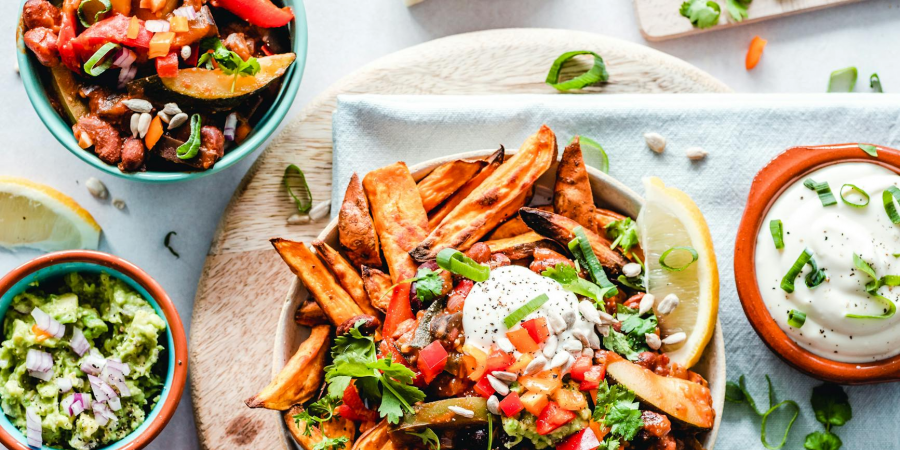

## The Art and Science of Food: A Culinary Exploration
Food is an essential part of human existence, providing sustenance and nourishment to our bodies. Beyond its basic role in sustaining life, food has profound cultural, social, and emotional significance. The diversity of food across the globe mirrors the rich tapestry of human culture, history, and geography, with each region offering unique culinary traditions and flavors.
Agriculture is the starting point of the food journey, where crops are grown, and livestock is raised. This agricultural bounty forms the foundation of our diets, supplying a wide variety of ingredients. These ingredients are transformed through various cooking methods, each adding distinct flavors and textures to the food. Techniques such as grilling, steaming, frying, and baking have their own cultural and historical significance, contributing to the culinary diversity we enjoy today.
Food plays a central role in social and cultural rituals. Many celebrations and festivals revolve around special foods that hold symbolic meanings. For example, Thanksgiving in the United States is synonymous with turkey, a tradition rooted in the early settlers' harvest celebrations. In Japan, sushi is not merely a dish but an art form, with a focus on precision, presentation, and balance.
Nutrition science emphasizes the importance of a balanced diet for maintaining good health. A diet rich in fruits, vegetables, whole grains, and lean proteins is essential for optimal physical and mental well-being. Scientific research continually provides new insights into how different foods impact our health. For instance, the Mediterranean diet, which emphasizes olive oil, fish, and fresh produce, is linked to numerous health benefits, including reduced risk of heart disease and improved cognitive function.
The environmental impact of food production and consumption is a growing concern. Sustainable practices such as organic farming, local sourcing, and reducing food waste are gaining importance. Consumers are increasingly aware of the origins of their food and its production methods, driving a shift towards more sustainable and ethical eating habits. This awareness fosters a connection between people and the planet, encouraging more mindful food choices.
Food is also a source of joy, creativity, and innovation. Chefs and home cooks experiment with flavors, textures, and presentations to create dishes that delight the senses. The rise of food blogging and social media platforms like Instagram has turned food photography into an art form, inspiring culinary exploration and sharing of recipes.
In conclusion, food is much more than mere sustenance. It is a celebration of culture, a cornerstone of health, a driver of sustainability, and a source of endless creativity. Whether enjoyed in a bustling street market or a fine dining restaurant, food has the remarkable ability to nourish both body and soul, bringing people together and enriching our lives in countless ways.
